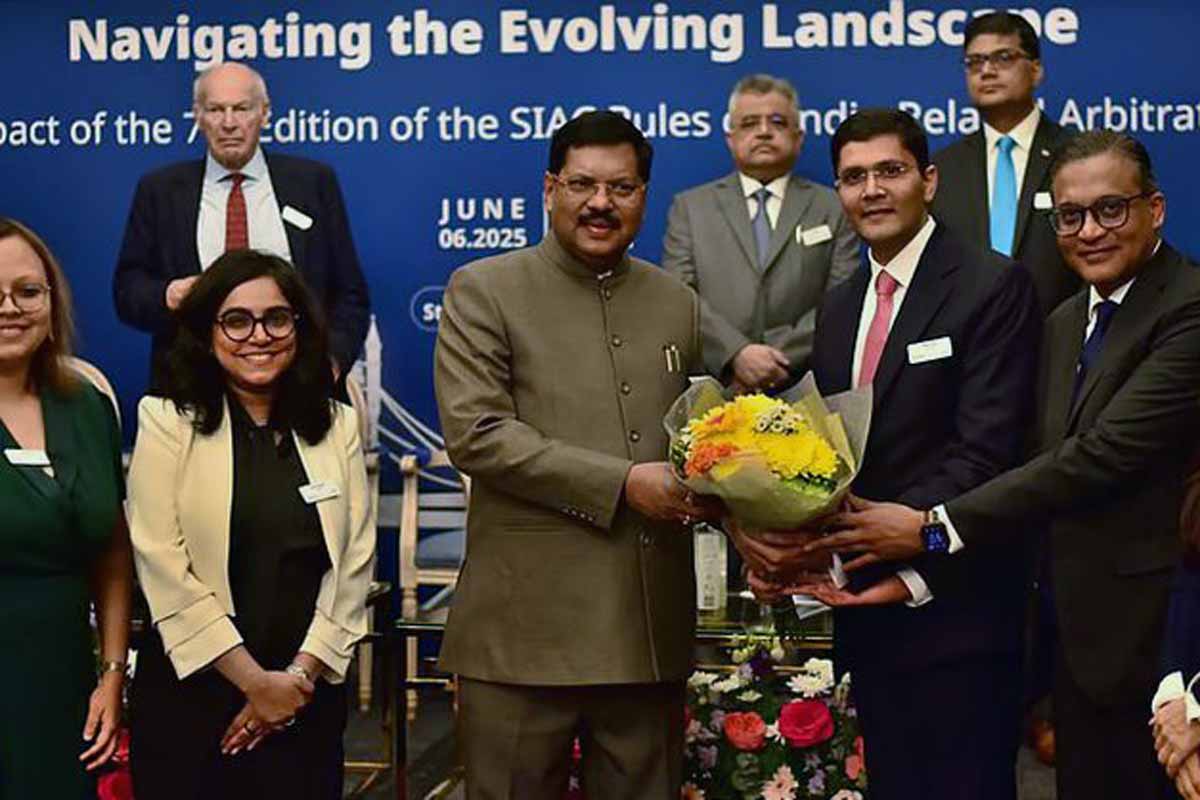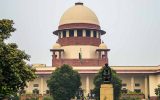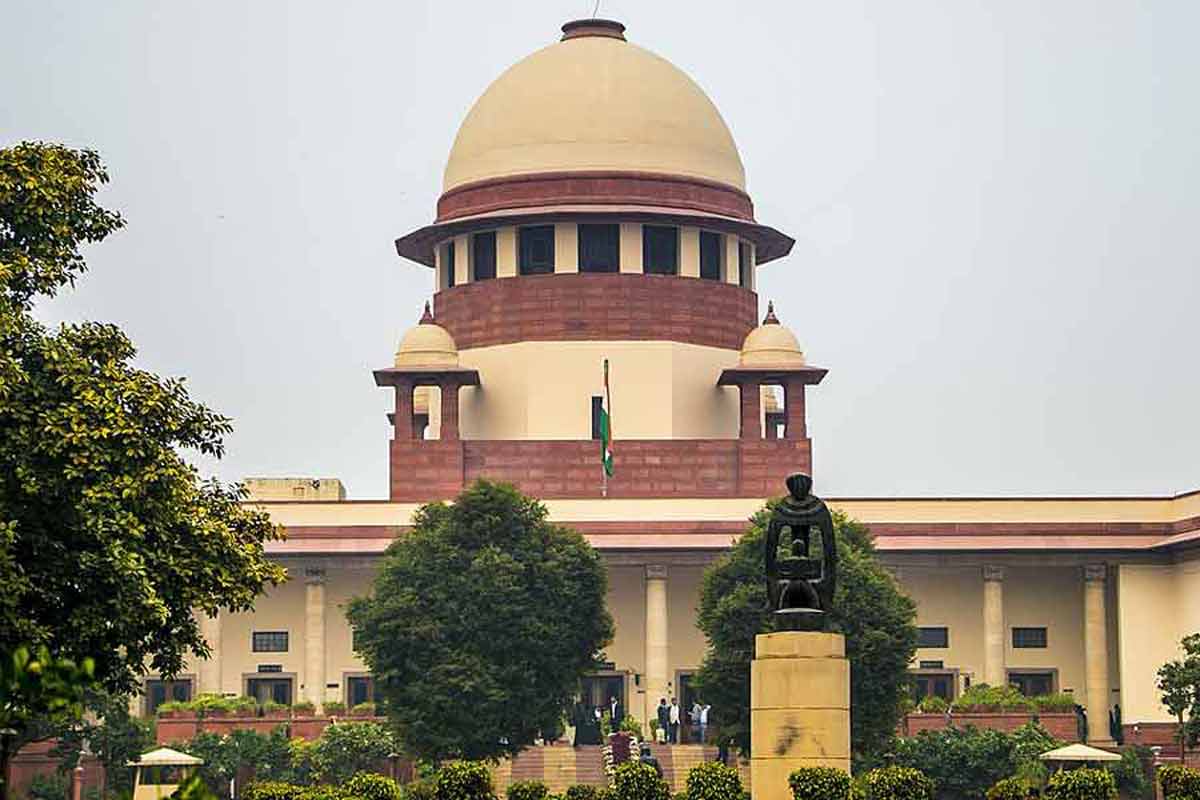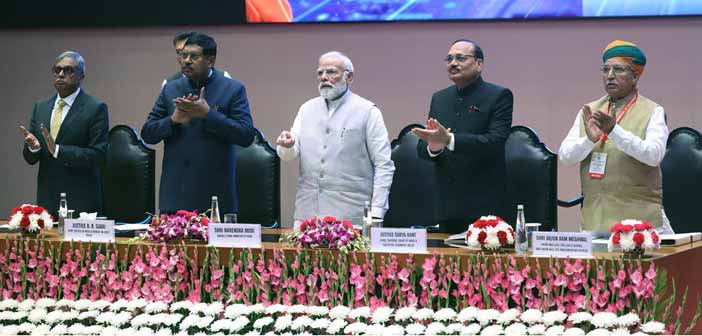Don’t Hide Your Mental Health Issues: CJI BR Gavai to Law Students: HYDERABAD, INDIA – In a candid and compassionate address to the graduating class of NALSAR University of Law, Chief Justice of India Justice B.R. Gavai delivered a powerful message urging young lawyers to confront the emotional and structural challenges inherent in the legal profession, emphasizing the critical importance of mental health and self-care. His remarks, delivered at the university’s 22nd Convocation, resonated deeply, offering both a stark reality check and an uplifting call to foster a more supportive legal community.
Justice Gavai began by acknowledging the relentless demands of the legal profession. “This profession demands that you constantly prove yourself: to the court, to your client, to your peers, and often, to yourself. It demands. And it keeps demanding,” he stated, painting a vivid picture of the unyielding pressures young legal professionals will encounter. He spoke directly to the internal and external scrutiny lawyers face, noting, “You will be measured constantly, not just by judges and clients, but often by your own inner voice. You will question your path. You will be questioned. You will be overlooked. You will feel invisible. And yet, you will keep showing up.”
READ: CJI BR Gavai Cautions Law Students Against Foreign LLMs by Taking Heavy Loans
The Hidden Struggles: A Call for Openness
Addressing the elephant in the room – mental health within the legal fraternity – Justice Gavai did not mince words. “This profession can be isolating and emotionally taxing. The hours are long. The expectations, high. The culture, sometimes ruthless. You will feel pressure not just to succeed, but to appear successful,” he warned. His most poignant plea was for the graduates to shed the culture of silence surrounding mental health struggles. “Many hide their struggles. I urge you not to. Find your community.” He underscored this by declaring, “self-care is not a luxury. It is a strategy,” a stark reminder that personal well-being is integral to professional sustainability.
To buttress his point, Justice Gavai drew upon wisdom from various thinkers. He quoted Bell Hooks, saying, “Rarely, if ever, are any of us healed in isolation. Healing is an act of communion.” He also invoked Audre Lorde’s powerful assertion: “Caring for myself is not self-indulgence, it is self-preservation, and that is an act of political warfare.” For those who might feel anxious or introverted in a profession often perceived as extroverted, Justice Gavai offered reassurance: “Strength is not always measured in decibels. It lies in clarity, in insight, in depth… There is no single mould for what a lawyer should be. Make room for your own rhythm. There is enough space in this profession for many ways of being.” He advised them to “Spend your free time the way you like, not the way you think you’re supposed to,” quoting Susan Cain.
Reinforcing the danger of suppressed emotions, he cited Sigmund Freud: “Unexpressed emotions will never die. They are buried alive and will come forth later in uglier ways.” He then delivered a liberating message: “It’s okay to take a pause in life, sometimes. It’s okay to be uncertain. You don’t always have to prove yourself. Sometimes, just being is enough.”
READ: Justice Suryakant Backs India as New Destination for International Arbitration
Addressing Structural Inequalities
Beyond individual well-being, Justice Gavai broadened his focus to the systemic issues that contribute to mental health challenges and inequality within the legal field. He highlighted how “Structural inequality hides in silence. In the subtle comments. In the internship that never comes. In the doors that are hard to open.” Referring to a 2023 study, “The Making of Lawyers’ Careers: Inequality and Opportunity in the American Legal Profession,” he observed how a lawyer’s starting point significantly influences their career trajectory. This phenomenon, he noted, is equally visible in India, where “A student from a National Law School in a metro city may be seen as ‘better placed’ than one from a smaller university, not necessarily because of skill, but because of perception. This is unfair. But it is real. We need to confront it, not accept it.”
READ: MoD Begins Review of Defence Acquisition Procedure
Foundations, Mentorship, and Institutional Change
Justice Gavai also offered practical advice on building a successful legal career, stressing the enduring importance of a strong foundational understanding of law. “There is no shortcut to knowing the law. The Constitution, the Contract Act, the Code of Civil Procedure, the criminal law, and other core subjects are not optional subjects,” he asserted, urging graduates to maintain these fundamental strengths even as the legal landscape evolves with technologies like AI and data privacy.
A significant portion of his address was dedicated to the crucial role of mentorship. He passionately appealed to senior lawyers, judges, and professors in the audience to embrace mentorship as a responsibility rather than a favor. “Be the one who writes a recommendation, who explains a case, who tells a young graduate that they belong even when the room says otherwise. Mentorship is not a favour. It is a responsibility.” To the graduates, he advised, “seek mentors not for their power, but for their integrity. And one day, become mentors yourselves. That is how we build not just careers, but a community of care within the profession, one that uplifts, not one that intimidates.”
He also cautioned against the mounting pressure to pursue foreign master’s degrees, advising students not to incur substantial loan burdens for such qualifications. Instead, he called for broader institutional changes to attract and retain talent in India. “We need to invest not only in institutions but in imagination, in mentorship programmes, research fellowships, policy labs, local innovation ecosystems, and ethical workplaces that make our best minds want to stay, or return,” he emphasized.
READ: Pixxel Bags iDEX Grant to Develop Hyperspectral and Mid-Wave Infrared Payloads
Finally, Justice Gavai touched upon the legal profession’s role in addressing systemic issues like prolonged trials, citing U.S. judge Jed S. Rakoff’s “Why the Innocent Plead Guilty and the Guilty Go Free.” He expressed cautious optimism that legal professionals would rise to such challenges.
Concluding his address with deeply personal advice, Justice Gavai urged the graduates to “Never ignore the five things in life: friends and family, books, hobbies, health, and imagination.” He specifically highlighted the often-overlooked aspect of health, quoting psychologist Dr. Rajiv Mehta on the need for regular medical check-ups to become a routine. He ended by reminding the aspiring lawyers that their chosen path is far from a “dry craft,” but rather “a living, evolving space of ideas, emotions, and hope.”
READ: India Will Not Succumb to Pakistan’s Nuclear Blackmail: Modi











